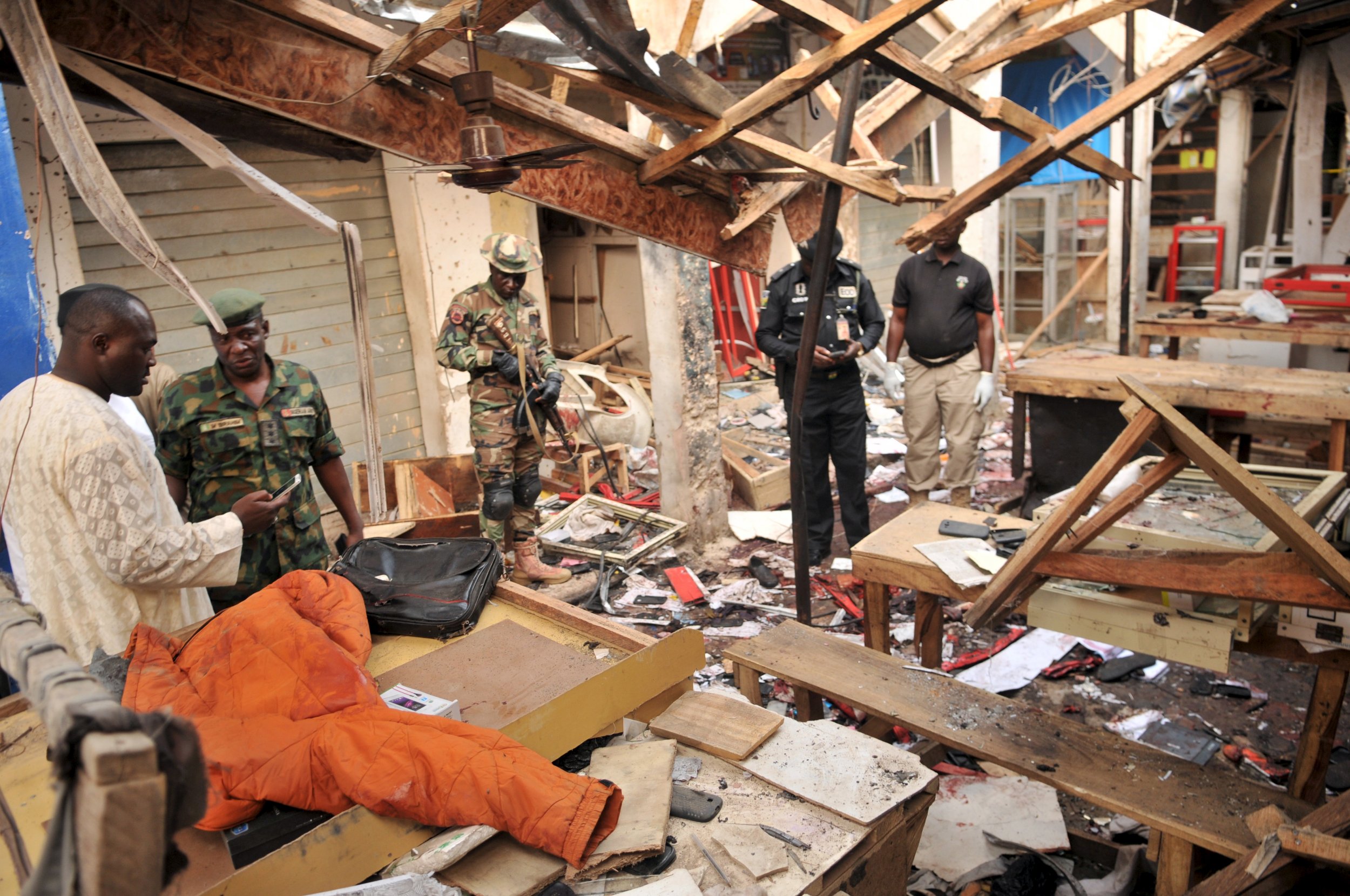
Updated | The Nigerian military remains on course to defeat the radical Islamic group Boko Haram by Abuja's self-imposed deadline of the end of the December, President Muhammadu Buhari's official spokesman told Newsweek on Thursday, despite apparent dissent by a senior military official.
"Twenty-four hours ago, the head of the Nigerian Army, General Buratai, reaffirmed the commitment of the government to achieving the deadline," Garba Shehu says by phone from the Nigerian capital, in reference to a speech Buratai gave in Borno on Wednesday. "That is the official government position."
Shehu's comments come after Air Commodore Yusuf Anas of the Abuja-based Center for Crisis Communication, cited as a Nigerian government spokesman by the Associated Press, said that the Nigerian military would not be able to meet the December deadline.
Anas broke with the government's stance on the fight against Boko Haram, warning that the deadline "may be unrealistic" and saying Nigerians should not regard December as a "sacrosanct date when all suicide bombings will end."
Anas told the AP: "The timeline on when to stop the insurgents from activating sleeper cells and detonating bombs into soft targets in any part of the country, especially in the frontline states, is therefore not tenable."
But Shehu says Anas does not represent the government and can't speak to its policies regarding the fight against Boko Haram.
"Air Commodore Anas does not work for the Nigerian government, the center which he said that from does not speak for the Nigerian government, but he is entitled to his own opinion on the matter," Shehu adds.
In contrast with Anas' opinion of what would constitute a defeat of the militant group by December, Shehu says the government's definition of victory does not include stopping the group's deadly suicide bombings across the country's northern regions.
"[The group's defeat] will mean that they will no longer hold any territory claiming to be their own," Shehu says. "They will no longer be able to launch the kind of attacks that would allow them to seize land."
But, he warns, "to say that there would be no more terror activities, it's like promising a given society that there would be no more crime. It doesn't happen anywhere."
After coming to power in a historic election win in May, Buhari said the Nigerian military would crush Boko Haram—who pledged allegiance to the Islamic State militant group (ISIS) in March—by the end of the year. Yet, even as the government insists it can defeat Boko Haram within a month's time, the group is still waging its asymmetric warfare in northern Nigeria and neighboring countries.
On November 18, Boko Haram killed dozens of people in two suicide bomb attacks in the cities of Kano and Yola. On Thursday, the group's fighters shot and killed 15 people in the village of Gogone in southern Niger, near the border with Nigeria, Reuters reported.
Manji Cheto, vice president of London-based political risk consultancy Teneo Intelligence, says that the Buhari administration had promised to prevent asymmetric attacks like those in Kano and Yola, so it can't claim to have defeated the militant group if those types of incidents continue.
"Absolutely not," she says when asked if Shehu's definition of a successful defeat of Boko Haram was acceptable. "My definition of defeating Boko Haram is neutralizing the force, and that clearly hasn't happened in the region."
A new study released by The Institute of Economics and Peace at the University of Maryland shows that Boko Haram was responsible for 6,664 deaths in 2014, making it the deadliest militant group in the world that year—more so than ISIS.
The group's insurgency has already lasted six years, forcing more than 2.6 million people from their homes and leaving at least 26,000 people dead, according to the Council on Foreign Relations Nigeria Security Tracker. Three of the country's northeastern regions—Adamawa, Borno and Yobe—are still under a state of emergency as Nigerian forces battle to boost security after recapturing territory the group had seized earlier in the year.
This article has been updated to include the first name of Garba Shehu after it was erroneously omitted from an earlier edition.
Uncommon Knowledge
Newsweek is committed to challenging conventional wisdom and finding connections in the search for common ground.
Newsweek is committed to challenging conventional wisdom and finding connections in the search for common ground.
About the writer
To read how Newsweek uses AI as a newsroom tool, Click here.








